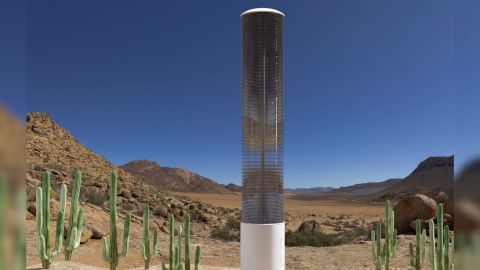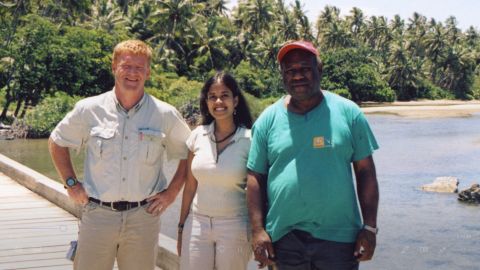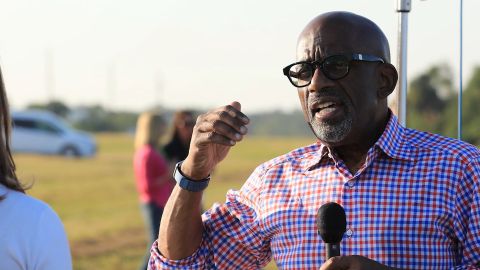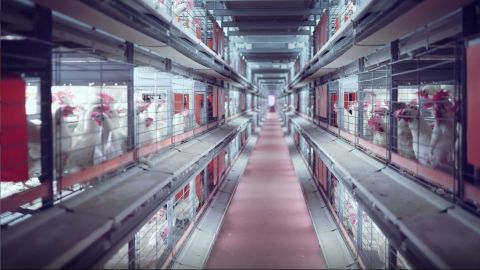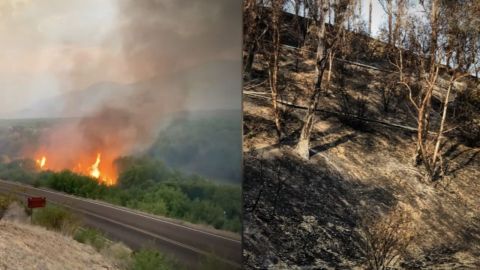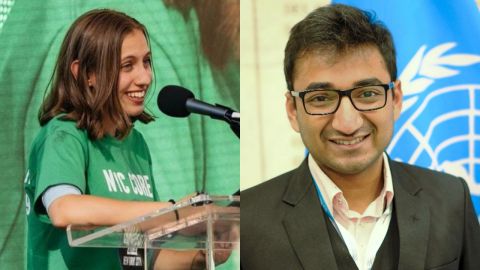Op-ed: In A Time of Urgency and Hope, How Do We Move The Planet Forward?
 BY: Frank Sesno, Founder and Host of Planet Forward
BY: Frank Sesno, Founder and Host of Planet Forward
This story is part of Covering Climate Now, a global journalism collaboration strengthening coverage of the climate story.
Watch the latest episode of Planet Forward which looks at how climate change is bringing surprising food options to the menu here.
I started Planet Forward at the George Washington University to do something different and deliberate: establish a sustained focus on sustainability and climate change, engage young people who care about the planet, and invite them to tell stories that highlight the innovators and inventors who are trying to save us. Over the years, we have collected close to 5,000 stories – dealing with food, energy, water, biodiversity, the built environment. We have gathered at a Planet Forward Summit each year, engaged with leaders in the field, celebrated the power of the storytelling, and awarded Storyfest Prizes for the best use of data, science, character, and creativity.
I have been endlessly inspired by our young storytellers. Their narratives are original, clever, often surprising. Their messages are urgent, but also hopeful. The protagonists in their stories are real-world examples of the ingenuity of which humankind is capable. It’s made me think that perhaps we could be approaching a tipping point – a very different one than commonly assumed.
A clip from a Planet Forward interview with Alexandria Villaseñor, prominent youth climate activist and founder of Earth Uprising.
Typically, we read about tipping points with dread. Melting ice. Rising seas. Burning forests. They are the planet’s darkest and most frightening headlines, shouting that we are witnessing abrupt and irreversible damage. But this other tipping point could be a harbinger for breakthrough, promise, and hope. It could be a force that is just as abrupt and irreversible as the crisis that propels it. If it happens, it will be built on a new urgency, on scalable action and young voices, and on true commitment to environmental justice and inclusion.
We see the urgency expressed in new and growing ways. With the arrival of the Biden administration, the federal government has put a powerful and unprecedented focus on climate change. Federal departments and agencies – from Energy to Transportation, Agriculture to Interior – are now led by people who are determined and dynamic climate advocates. They work for Joe Biden but are inspired by Barack Obama’s ticking-clock dictum: “We are the first generation to feel the effect of climate change and the last generation who can do something about it.” The Biden administration is dramatically reordering priorities and will spend billions to do so.
“I have been endlessly inspired by our young storytellers. Their narratives are original, clever, often surprising.”
I explored this new world in a Planet Forward Summit conversation with the new Environmental Protection Agency Administrator, Michael Regan. I ticked through data that illustrates how climate change is upon us – and accelerating: Record-breaking temperatures, extreme weather, Arctic ice melts. It’s a bleak scenario, I observed.
“We’re a resilient country. We’re good at this,” Regan told me. “It’s not too late.” Sitting in his office, punching his words, he said he will bring science into every decision, coordinate across government, work with states and localities– make use of carrots and sticks. He also made clear that environmental justice will be a centerpiece of his mission.
“For decades Black, Indigenous, Latinx and other people of color have disproportionately borne the highest burden of pollution,” Regan told me. Having stood up the first Environmental Justice and Equity Advisory Council when he ran North Carolina’s Department of Environmental Quality, he now plans to do the same at the federal level.
Regan cited an environmental justice advisory council that will connect affected communities directly to the White House, environmental justice community grants, and targeted money in the $1.9 trillion COVID rescue package to frame this environmental blitz as a long-haul investment. “We are really focused on setting up the right infrastructure internally so that we know how to deliver the new resources that the president and congress are making available,” Regan said.
Public opinion enables this shift. Though still polarized around ideology and politics, clear majorities want action. Young people, who have the most at stake in this warming world, have been especially effective at communicating outrage and urgency. But according to a Gallup Poll released in April, nearly two-thirds of Americans say they are very worried (43%) or worry “a fair amount” (22%) about climate change. Six in 10 say global warming is happening and caused by human activity. Sure, party affiliation reveals the partisan divide: 82% of Democrats say the effects of global warming have already begun, while just 11% of Republicans agree. Yet, 88% believe global warming “will eventually affect humans,” a sentiment shared by 99% of Democrats, 89% of Independents, and 74% of Republicans – a gap, yes, but still supermajorities in each camp.
“…This other tipping point could be a harbinger for breakthrough, promise, and hope. It could be a force that is just as abrupt and irreversible as the crisis that propels it.”
Perhaps the most important driver of this more hopeful future is the potential for critical, scalable mass in what we can actually do. Technological breakthrough and economic viability are lining up as allies in the battle to create a sustainable planet. The price of electricity from solar power plants has fallen nearly 90% in just the last decade and is now competitive with traditional fuel sources like coal and even, natural gas. EV carmaker Tesla sales have soared; in 2021 the company surpassed Facebook in value. General Motors says it’s going EV by 2035. It frames its message around a climate-focused mission, promising to bring the world to “an all-electric future… moving us closer to a world with zero emissions.” Businesses are increasingly incorporating sustainable practices and packaging. Universities are increasingly divesting their portfolios of fossil fuels and moving away from single use plastics.
The movement is growing at both the global and the local level. The United States has rejoined the Paris Climate Agreement and says it intends to lead on this issue. U.S. Climate Envoy John Kerry was the first high-level member of the administration to visit China.

Phoenix’s “Cool pavement” is an example of new urban technologies that are battling the dangers of extreme heat.
Meanwhile, local leaders are acting. The hottest big city in America broke heat records last year when it endured 145 days over 100 degrees. “We keep setting new records relating to heat,” Phoenix Mayor Kate Gallego told me when we sat down for a conversation on Planet Forward.
Mayor Gallego is trying to make Phoenix a “heat ready” city. She’s racing to use technology and common sense to mitigate the urban heat island effect that magnifies the city’s problems. That includes new projects to layer roadways with a “cool pavement” coating that reflects rather than magnifies heat; planting native species trees to grow the natural shade canopy; and installation of solar covers that both generate electricity and cast cooling shade over parking lots and other open facilities.
“We are trying to develop a model and toolkit for how cities can respond to heat,” the mayor told me. Across the board, she’s keenly aware that these benefits must be shared with the poorest communities that have the fewest resources. “We’re trying to put equity in the forefront,” she said.
There is no assurance of success. The positive tipping points I envision could be too little, too late. They could get bogged down in political bickering or be defeated by the overwhelming natural forces of climate change. But we must capitalize on this new urgency, invest in breakthrough opportunities, listen to young voices, and incorporate environmental justice and inclusion into every aspect of the climate crisis. Because we must ask: which tipping point do we want?
 As Director of GW’s School of Media and Public Affairs, Frank Sesno has been focused on the next generation of storytellers and on the future of journalism in a chaotic world. He started Planet Forward at GW in 2009 to launch the next generation of environmental storytellers and highlight ideas that can be transformative, which now includes Planet Forward: the series in partnership with Peril & Promise. His lifelong journalistic career includes 21 years at CNN. As CNN White House correspondent, anchor, and Washington Bureau Chief, Frank reported on events and people from around the world.
As Director of GW’s School of Media and Public Affairs, Frank Sesno has been focused on the next generation of storytellers and on the future of journalism in a chaotic world. He started Planet Forward at GW in 2009 to launch the next generation of environmental storytellers and highlight ideas that can be transformative, which now includes Planet Forward: the series in partnership with Peril & Promise. His lifelong journalistic career includes 21 years at CNN. As CNN White House correspondent, anchor, and Washington Bureau Chief, Frank reported on events and people from around the world.


